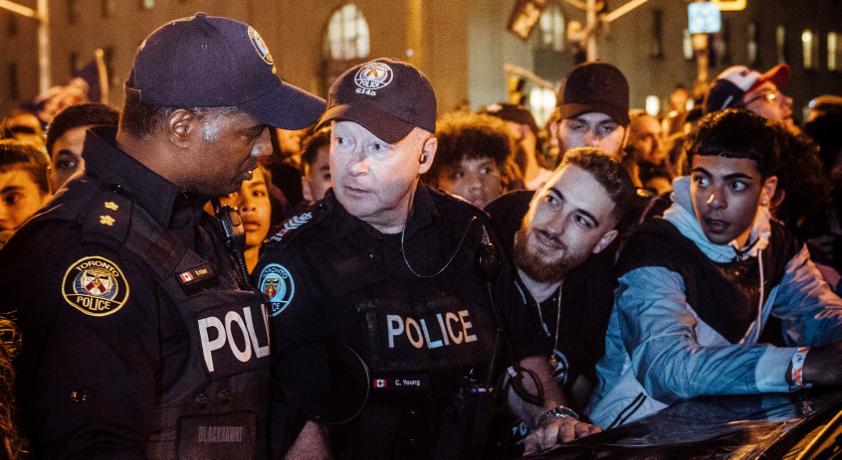Last Updated: 26 May, 2023

Criminology Degree
Criminology is a specialized area of study within the field of criminal justice that explores the causes and consequences of crime and methodologies for crime prevention and control. It is a multi-disciplinary field that draws from the social sciences, psychology, sociology, economics, anthropology, and law.
What Is a Criminology Degree?
A criminology degree is an interdisciplinary field of study that examines the causes and effects of criminal behavior by combining components of the social sciences, psychology, law, and criminal justice. Students pursuing a criminology degree learn how to examine crime-related data, identify risk factors connected with crime, and develop effective tactics for reducing crime and increasing public safety.
Coursework is designed to help students understand how to connect criminology theory and research to real-world situations. Students investigate theoretical and practical approaches to criminal behavior, as well as legal, social, and psychological aspects of crime. Criminal law, sociology, psychology, juvenile delinquency, victimology, deviant behavior theories, criminological research methodologies, and crime prevention strategies are examples of common courses a student will take.
Criminology Degree Options
What’s behind the criminal mind? What conditions lead to law-breaking, deviant behaviors? Why does one person rise above the challenges of life while another falls prey to addiction or violence? How can law enforcement and the criminal justice system address these issues?
Students interested in exploring these questions and developing strategies to solve real-world problems associated with the prevention and reduction of crime will find that a degree in Criminology is the best way to gain a better understanding of criminal behavior and the role of law enforcement in society. The following section provides an overview of the various criminology degrees available, including Bachelor’s, Master’s, and online degrees.
Bachelor’s Degree in Criminology
A bachelor’s degree in Criminology is a four-year undergraduate program designed with an emphasis on theoretical and methodological frameworks for evaluating crime and social control. The course curriculum is interdisciplinary and introduces students to an expanding body of knowledge and research on the functional aspects of controlling crime, including social, legal, and psychological perspectives.
Students who complete criminology and crime analysis courses learn to bridge the gap between theory and practice, developing specialized data-driven problem-solving skills that can be applied to complex problems in the criminal justice system. Additionally, students will learn how to assess risk factors and identify trends in crime and the underlying causes and patterns of criminal behavior.
Master’s Degree in Criminology
A master’s degree in Criminology is a two-year graduate program that provides students with an advanced academic and research-based understanding of the criminal justice system and how to make evidence-based decisions in order to reduce crime. This scientific grounding and blending of theory, research, and practice are essential for those seeking higher-level roles in areas that contribute to the public interest and the betterment of society.
Criminology master’s degree graduates emerge with skills and knowledge that are highly sought after by federal, state, and local law enforcement agencies, and employers in legal settings, government, non-profit organizations, and the private sector. For those who wish to continue their education or pursue opportunities with top research universities, a master’s degree is likely a requirement.
Online Degree in Criminology
Earning an online degree in Criminology offers students the same high-quality education as a traditional, on-campus program with the convenience of being able to work at their own pace and from any location. Programs are available in 100% online, on-campus evening, and hybrid formats to suit the needs of a variety of learners. Online classes are typically conducted in a self-paced, asynchronous format and include interactive lectures, case studies, discussion forums, live video chats with instructors, and practical projects.
Students who graduate from an online criminology degree program receive the same credentials as those who have completed a traditional brick-and-mortar program. Online students learn from the same accredited faculty members and receive the same course content as students who attend classes on campus. All diplomas and transcripts earned through online programs are identical to those from traditional institutions, making them valid for job applications and graduate studies.
Criminology Degree Jobs
By earning a degree in Criminology, students are well-positioned to compete for jobs in the fast-growing field of criminal justice. The U.S. Bureau of Labor Statistics forecasts over 68,500 new jobs in police and detective work each year, on average, over the next decade. Opportunities that arise from workers who leave protective services occupations are expected to result in an additional 421,500 openings, each year, over the same period.
In addition to jobs in law enforcement and criminal justice, criminology graduates can pursue careers with social service agencies, consulting firms, victim advocacy groups, and non-profit organizations dedicated to crime prevention. The field of criminology also offers a wide range of research-related opportunities in academia, corporate think tanks, and strategic advisory services. With further education and training, criminology graduates can pursue careers as lawyers, judges, and forensic psychologists.
Jobs You Can Get With a Criminology Degree
Whether you are looking to break into the field of law enforcement, seeking a career in the legal system, or interested in research-oriented opportunities, a degree in Criminology will open doors in a number of areas. Common areas of employment include:
Criminal Justice
Careers in criminal justice offer a variety of roles related to the prevention, investigation, prosecution, and rehabilitation of those who have committed crimes. Job titles in this field include police officers, police detectives, corrections officers, security guards, probation and parole officers, legal assistants, or paralegals. These positions are typically found in federal, state, and local government agencies or private security firms.
Social Services
Working in social services involves providing aid and support to vulnerable individuals or groups within a community. This may include counseling victims of crime, assisting with criminal rehabilitation programs, or helping families navigate government systems as they deal with difficult family and life circumstances such as domestic violence, homelessness, and child custody issues. Job titles in this field include social worker, crisis intervention specialist, victim advocate, family services specialist, case manager, and substance abuse counselor.
Public Policy and Research
Jobs in public policy and research involve developing, evaluating, and implementing strategies to address societal issues such as crime prevention, restorative justice, criminal sentencing reform, and juvenile delinquency. Job titles in this field include public policy analyst, research analyst, legislative analyst, survey researcher, and policy advisor. These positions may be found in non-profit organizations, government agencies, research institutions, or corporate think tanks.


